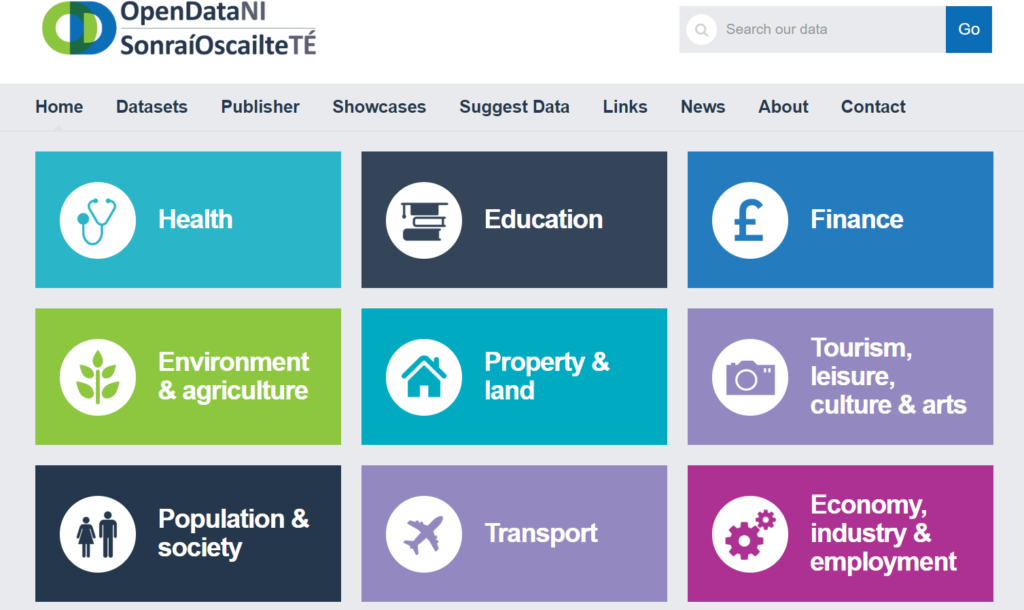Leveraging CKAN for publishing open data in Germany
Effective data management is crucial for public administrations, who collect large amounts of diverse data on a daily basis. They differ from other data-collecting organizations in the sense that the data they produce arguably can have more impact outside of the organisation than it can inside it. Open data, i.e. the provision of administrative data for public use and dissemination, is the cornerstone of open government.

Alongside the ‘eGovernment Act (EGovG)’, the Federal Government’s ‘Digital Administration 2020’ programme made working towards digitisation in Germany a legal requirement for public administrations. For the first time in the federal republic’s history, the federal government outlined a plan for the provision of open data by means of the open data provision in Section 12a EGovG.
TIP
N.b. in this context, open data is defined as data that is made publicly accessible under a free licence and may be used and reused without restrictions.
#But… what about data security?
Despite these legal initiatives, many administrations still hold back when it comes to publishing data openly. Data privacy is a deep-rooted concern among many Germans and open data is thus often greeted with suspicion. In order to make the most of the opportunity presented by the country’s new legislation, German public authorities must be granted a better understanding of the advantages created by open data.
Afterall, the advantages are considerable. Firstly, open data allows public administrations to supplement their own data with that of other organizations, thereby strengthening their basis for informed decision making. A great example is the Open.NRW, as well as the Vergabeportal.NRW, which facilitate the exchange of open data between authorities in the German state of Nordrhein-Westfalen. In this sense, publishing public data openly affords both administrations and the general public a level of autonomy that would not otherwise have been possible when it comes to making fact-based, accountable decisions. It also encourages public trust in government and enables new forms of cooperation and communication between civil society, business and the state.
#Open data success stories
Before public data is published openly, the authorities publishing it cannot know exactly what will happen to their data, and this can feel daunting. However, public administrations should try to think of this uncertainty as a positive. It is perhaps obvious to say that the chances of one person in a single organization coming up with the optimal use for that organization’s data are slim. If you really want to unlock your data’s potential, then you need to let everyone look at it, because the likelihood is that the best idea for how to use your data will be discovered by someone else.
Moreover, there are numerous open data success stories in public administration, and many of these were aided greatly by CKAN. In Great Britain, the home of the now international NGO the Open Knowledge Foundation, many institutions are already reaping the benefits of open data. With the help of Datopian, the government of Northern Ireland has built a CKAN-based data portal, for which new use cases are constantly emerging. Belfast City Council, for example, has identified commercial properties that were marked as available by estate agents, when in fact they were being used by businesses, which has enabled the Government of Northern Ireland to collect £350,000 in unpaid taxes.
To encourage more such use cases, the initiative ‘Open Data Northern Ireland’ has established a fund to support the design of open, data-driven apps. Anyone who has an idea for an app that uses open data to somehow benefit the public is eligible to receive a grant of between £300-£5000. As part of the initiative, the authorities have also created an online form where citizens can make suggestions for datasets that they would like to see collected.

Open Data Northern Ireland dashboard.
Like many of Datopian’s EU public administration clients, the cities of Scotland also wanted to use open-source software to empower their open data programme. Some data sets on their CKAN portal have received thousands of hits, with some unlikely data sets proving very popular, such as one that provides information on cemeteries in the city of Sterling. Following the publication of this data set, which provides records of gravestones, several citizens have contacted the authorities to inform them of inaccuracies. This is a great example of how public administrations can use CKAN open data portals to improve the quality of existing data.
#Promoting open data in Europe and Germany
Upon Britain’s exit from the EU, a large part of Europe’s open data knowledge will most likely go with them. With the statutory Open Data regulation in § 12a EGovG and the government programme “Digital Administration 2020”, Germany is already on the right path to filling this knowledge gap. By promoting the adoption of CKAN in Germany, together publicplan and Datopian want to help German organizations to unlock their data’s potential.
Want to work with Datopian? We are data management experts providing open-source tooling and related services to organisations worldwide. Check our website for more information or contact us.
© Datopian (CC Attribution-Sharealike (by-sa)).